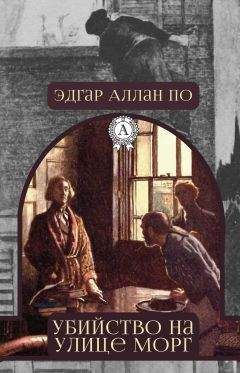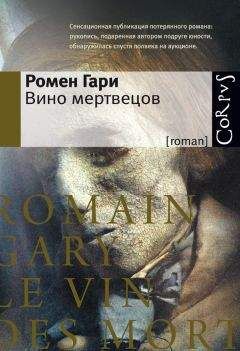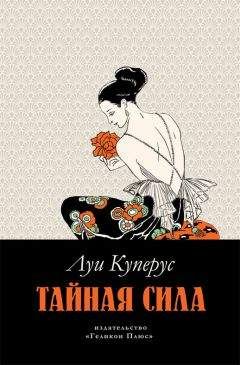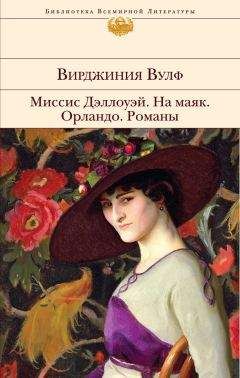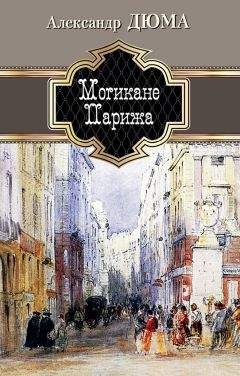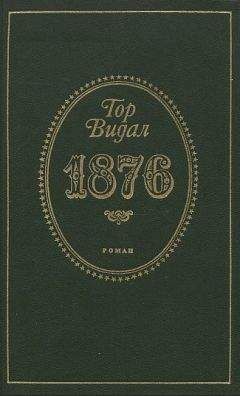Шарлотта Бронте - Лучшие романы сестер Бронте / The best of the Brontë sisters

Все авторские права соблюдены. Напишите нам, если Вы не согласны.
Описание книги "Лучшие романы сестер Бронте / The best of the Brontë sisters"
Описание и краткое содержание "Лучшие романы сестер Бронте / The best of the Brontë sisters" читать бесплатно онлайн.
«Иностранный язык: учимся у классиков» – это только оригинальные тексты лучших произведений мировой литературы. Эти книги станут эффективным и увлекательным пособием для изучающих иностранный язык на хорошем «продолжающем» и «продвинутом» уровне. Они помогут эффективно расширить словарный запас, подскажут, где и как правильно употреблять устойчивые выражения и грамматические конструкции, просто подарят радость от чтения. В конце книги дана краткая информация о культуроведческих, страноведческих, исторических и географических реалиях описываемого периода, которая поможет лучше ориентироваться в тексте произведения.
Серия «Иностранный язык: учимся у классиков» адресована широкому кругу читателей, хорошо владеющих английским языком и стремящихся к его совершенствованию.
“No, indeed, Mrs. Fairfax!” exclaimed I, nettled; “he is nothing like my father! No one, who saw us together, would suppose it for an instant. Mr. Rochester looks as young, and is as young, as some men at five-and-twenty.”
“Is it really for love he is going to marry you?” she asked.
I was so hurt by her coldness and scepticism, that the tears rose to my eyes.
“I am sorry to grieve you,” pursued the widow; “but you are so young, and so little acquainted with men, I wished to put you on your guard. It is an old saying that ‘all is not gold that glitters;’ and in this case I do fear there will be something found to be different to what either you or I expect.”
“Why? – am I a monster?” I said: “is it impossible that Mr. Rochester should have a sincere affection for me?”
“No: you are very well; and much improved of late; and Mr. Rochester, I daresay, is fond of you. I have always noticed that you were a sort of pet of his. There are times when, for your sake, I have been a little uneasy at his marked preference, and have wished to put you on your guard: but I did not like to suggest even the possibility of wrong. I knew such an idea would shock, perhaps offend you; and you were so discreet, and so thoroughly modest and sensible, I hoped you might be trusted to protect yourself. Last night I cannot tell you what I suffered when I sought all over the house, and could find you nowhere, nor the master either; and then, at twelve o’clock, saw you come in with him.”
“Well, never mind that now,” I interrupted impatiently; “it is enough that all was right.”
“I hope all will be right in the end,” she said: “but believe me, you cannot be too careful. Try and keep Mr. Rochester at a distance: distrust yourself as well as him. Gentlemen in his station are not accustomed to marry their governesses.”
I was growing truly irritated: happily, Adèle ran in.
“Let me go, – let me go to Millcote too!” she cried. “Mr. Rochester won’t: though there is so much room in the new carriage. Beg him to let me go mademoiselle.”
“That I will, Adèle;” and I hastened away with her, glad to quit my gloomy monitress. The carriage was ready: they were bringing it round to the front, and my master was pacing the pavement, Pilot following him backwards and forwards.
“Adèle may accompany us, may she not, sir?”
“I told her no. I’ll have no brats! – I’ll have only you.”
“Do let her go, Mr. Rochester, if you please: it would be better.”
“Not it: she will be a restraint.”
He was quite peremptory, both in look and voice. The chill of Mrs. Fairfax’s warnings, and the damp of her doubts were upon me: something of unsubstantiality and uncertainty had beset my hopes. I half lost the sense of power over him. I was about mechanically to obey him, without further remonstrance; but as he helped me into the carriage, he looked at my face.
“What is the matter?” he asked; “all the sunshine is gone. Do you really wish the bairn to go? Will it annoy you if she is left behind?”
“I would far rather she went, sir.”
“Then off for your bonnet, and back like a flash of lightning!” cried he to Adèle.
She obeyed him with what speed she might.
“After all, a single morning’s interruption will not matter much,” said he, “when I mean shortly to claim you – your thoughts, conversation, and company – for life.”
Adèle, when lifted in, commenced kissing me, by way of expressing her gratitude for my intercession: she was instantly stowed away into a corner on the other side of him. She then peeped round to where I sat; so stern a neighbour was too restrictive to him, in his present fractious mood, she dared whisper no observations, nor ask of him any information.
“Let her come to me,” I entreated: “she will, perhaps, trouble you, sir: there is plenty of room on this side.”
He handed her over as if she had been a lapdog. “I’ll send her to school yet,” he said, but now he was smiling.
Adèle heard him, and asked if she was to go to school “sans mademoiselle?”
“Yes,” he replied, “absolutely sans mademoiselle; for I am to take mademoiselle to the moon, and there I shall seek a cave in one of the white valleys among the volcano-tops, and mademoiselle shall live with me there, and only me.”
“She will have nothing to eat: you will starve her,” observed Adèle.
“I shall gather manna for her morning and night: the plains and hillsides in the moon are bleached with manna, Adèle.”
“She will want to warm herself: what will she do for a fire?”
“Fire rises out of the lunar mountains: when she is cold, I’ll carry her up to a peak, and lay her down on the edge of a crater.”
“Oh, qu’ elle y sera mal – peu comfortable![95] And her clothes, they will wear out: how can she get new ones?”
Mr. Rochester professed to be puzzled. “Hem!” said he. “What would you do, Adèle? Cudgel your brains for an expedient. How would a white or a pink cloud answer for a gown, do you think? And one could cut a pretty enough scarf out of a rainbow.”
“She is far better as she is,” concluded Adèle, after musing some time: “besides, she would get tired of living with only you in the moon. If I were mademoiselle, I would never consent to go with you.”
“She has consented: she has pledged her word.”
“But you can’t get her there; there is no road to the moon: it is all air; and neither you nor she can fly.”
“Adèle, look at that field.” We were now outside Thornfield gates, and bowling lightly along the smooth road to Millcote, where the dust was well laid by the thunderstorm, and, where the low hedges and lofty timber trees on each side glistened green and rain-refreshed.
“In that field, Adèle, I was walking late one evening about a fortnight since – the evening of the day you helped me to make hay in the orchard meadows; and, as I was tired with raking swaths, I sat down to rest me on a stile; and there I took out a little book and a pencil, and began to write about a misfortune that befell me long ago, and a wish I had for happy days to come: I was writing away very fast, though daylight was fading from the leaf, when something came up the path and stopped two yards off me. I looked at it. It was a little thing with a veil of gossamer on its head. I beckoned it to come near me; it stood soon at my knee. I never spoke to it, and it never spoke to me, in words; but I read its eyes, and it read mine; and our speechless colloquy was to this effect –
“It was a fairy, and come from Elf-land, it said; and its errand was to make me happy: I must go with it out of the common world to a lonely place – such as the moon, for instance – and it nodded its head towards her horn, rising over Hay-hill: it told me of the alabaster cave and silver vale where we might live. I said I should like to go; but reminded it, as you did me, that I had no wings to fly.
“‘Oh,’ returned the fairy, ‘that does not signify! Here is a talisman will remove all difficulties;’ and she held out a pretty gold ring. ‘Put it,’ she said, ‘on the fourth finger of my left hand, and I am yours, and you are mine; and we shall leave earth, and make our own heaven yonder.’ She nodded again at the moon. The ring, Adèle, is in my breeches-pocket, under the disguise of a sovereign: but I mean soon to change it to a ring again.”
“But what has mademoiselle to do with it? I don’t care for the fairy: you said it was mademoiselle you would take to the moon?”
“Mademoiselle is a fairy,” he said, whispering mysteriously. Whereupon I told her not to mind his badinage; and she, on her part, evinced a fund of genuine French scepticism: denominating Mr. Rochester “un vrai menteur[96],” and assuring him that she made no account whatever of his “contes de fée[97],” and that “du reste, il n’y avait pas de fées, et quand même il y en avait[98]:” she was sure they would never appear to him, nor ever give him rings, or offer to live with him in the moon.
The hour spent at Millcote was a somewhat harassing one to me. Mr. Rochester obliged me to go to a certain silk warehouse: there I was ordered to choose half-a-dozen dresses. I hated the business, I begged leave to defer it: no – it should be gone through with now. By dint of entreaties expressed in energetic whispers, I reduced the half-dozen to two: these however, he vowed he would select himself. With anxiety I watched his eye rove over the gay stores: he fixed on a rich silk of the most brilliant amethyst dye, and a superb pink satin. I told him in a new series of whispers, that he might as well buy me a gold gown and a silver bonnet at once: I should certainly never venture to wear his choice. With infinite difficulty, for he was stubborn as a stone, I persuaded him to make an exchange in favour of a sober black satin and pearl-grey silk. “It might pass for the present,” he said; “but he would yet see me glittering like a parterre.”
Glad was I to get him out of the silk warehouse, and then out of a jewellers shop: the more he bought me, the more my cheek burned with a sense of annoyance and degradation. As we re-entered the carriage, and I sat back feverish and fagged, I remembered what, in the hurry of events, dark and bright, I had wholly forgotten – the letter of my uncle, John Eyre, to Mrs. Reed: his intention to adopt me and make me his legatee. “It would, indeed, be a relief,” I thought, “if I had ever so small an independency; I never can bear being dressed like a doll by Mr. Rochester, or sitting like a second Danae with the golden shower falling daily round me. I will write to Madeira the moment I get home, and tell my uncle John I am going to be married, and to whom: if I had but a prospect of one day bringing Mr. Rochester an accession of fortune, I could better endure to be kept by him now.” And somewhat relieved by this idea (which I failed not to execute that day), I ventured once more to meet my master’s and lover’s eye, which most pertinaciously sought mine, though I averted both face and gaze. He smiled; and I thought his smile was such as a sultan might, in a blissful and fond moment, bestow on a slave his gold and gems had enriched: I crushed his hand, which was ever hunting mine, vigorously, and thrust it back to him red with the passionate pressure.
“You need not look in that way,” I said; “if you do, I’ll wear nothing but my old Lowood frocks to the end of the chapter. I’ll be married in this lilac gingham: you may make a dressing-gown for yourself out of the pearl-grey silk, and an infinite series of waistcoats out of the black satin.”
He chuckled; he rubbed his hands. “Oh, it is rich to see and hear her?” he exclaimed. “Is she original? Is she piquant? I would not exchange this one little English girl for the Grand Turk’s whole seraglio, gazelle-eyes, houri forms, and all!”
The Eastern allusion bit me again. “I’ll not stand you an inch in the stead of a seraglio,” I said; “so don’t consider me an equivalent for one. If you have a fancy for anything in that line, away with you, sir, to the bazaars of Stamboul without delay, and lay out in extensive slave-purchases some of that spare cash you seem at a loss to spend satisfactorily here.”
“And what will you do, Janet, while I am bargaining for so many tons of flesh and such an assortment of black eyes?”
“I’ll be preparing myself to go out as a missionary to preach liberty to them that are enslaved – your harem inmates amongst the rest. I’ll get admitted there, and I’ll stir up mutiny; and you, three-tailed bashaw as you are, sir, shall in a trice find yourself fettered amongst our hands: nor will I, for one, consent to cut your bonds till you have signed a charter, the most liberal that despot ever yet conferred.”
“I would consent to be at your mercy, Jane.”
“I would have no mercy, Mr. Rochester, if you supplicated for it with an eye like that. While you looked so, I should be certain that whatever charter you might grant under coercion, your first act, when released, would be to violate its conditions.”
“Why, Jane, what would you have? I fear you will compel me to go through a private marriage ceremony, besides that performed at the altar. You will stipulate, I see, for peculiar terms – what will they be?”
“I only want an easy mind, sir; not crushed by crowded obligations. Do you remember what you said of Céline Varens? – of the diamonds, the cashmeres you gave her? I will not be your English Céline Varens. I shall continue to act as Adèle’s governess; by that I shall earn my board and lodging, and thirty pounds a year besides. I’ll furnish my own wardrobe out of that money, and you shall give me nothing but – ”
“Well, but what?”
“Your regard; and if I give you mine in return, that debt will be quit.”
“Well, for cool native impudence and pure innate pride, you haven’t your equal,” said he. We were now approaching Thornfield. “Will it please you to dine with me to-day?” he asked, as we re-entered the gates.
“No, thank you, sir.”
“And what for, ‘no, thank you?’ if one may inquire.”
“I never have dined with you, sir: and I see no reason why I should now: till – ”
“Till what? You delight in half-phrases.”
“Till I can’t help it.”
“Do you suppose I eat like an ogre or a ghoul, that you dread being the companion of my repast?”
“I have formed no supposition on the subject, sir; but I want to go on as usual for another month.”
“You will give up your governessing slavery at once.”
“Indeed, begging your pardon, sir, I shall not. I shall just go on with it as usual. I shall keep out of your way all day, as I have been accustomed to do: you may send for me in the evening, when you feel disposed to see me, and I’ll come then; but at no other time.”
“I want a smoke, Jane, or a pinch of snuff, to comfort me under all this, ‘pour me donner une contenance[99],’ as Adèle would say; and unfortunately I have neither my cigar-case, nor my snuff-box. But listen – whisper. It is your time now, little tyrant, but it will be mine presently; and when once I have fairly seized you, to have and to hold, I’ll just – figuratively speaking – attach you to a chain like this” (touching his watch-guard). “Yes, bonny wee thing, I’ll wear you in my bosom, lest my jewel I should tyne.”
He said this as he helped me to alight from the carriage, and while he afterwards lifted out Adèle, I entered the house, and made good my retreat upstairs.
He duly summoned me to his presence in the evening. I had prepared an occupation for him; for I was determined not to spend the whole time in a tête-à-tête conversation. I remembered his fine voice; I knew he liked to sing – good singers generally do. I was no vocalist myself, and, in his fastidious judgment, no musician, either; but I delighted in listening when the performance was good. No sooner had twilight, that hour of romance, began to lower her blue and starry banner over the lattice, than I rose, opened the piano, and entreated him, for the love of heaven, to give me a song. He said I was a capricious witch, and that he would rather sing another time; but I averred that no time was like the present.
Подписывайтесь на наши страницы в социальных сетях.
Будьте в курсе последних книжных новинок, комментируйте, обсуждайте. Мы ждём Вас!
Похожие книги на "Лучшие романы сестер Бронте / The best of the Brontë sisters"
Книги похожие на "Лучшие романы сестер Бронте / The best of the Brontë sisters" читать онлайн или скачать бесплатно полные версии.
Мы рекомендуем Вам зарегистрироваться либо войти на сайт под своим именем.
Отзывы о "Шарлотта Бронте - Лучшие романы сестер Бронте / The best of the Brontë sisters"
Отзывы читателей о книге "Лучшие романы сестер Бронте / The best of the Brontë sisters", комментарии и мнения людей о произведении.







